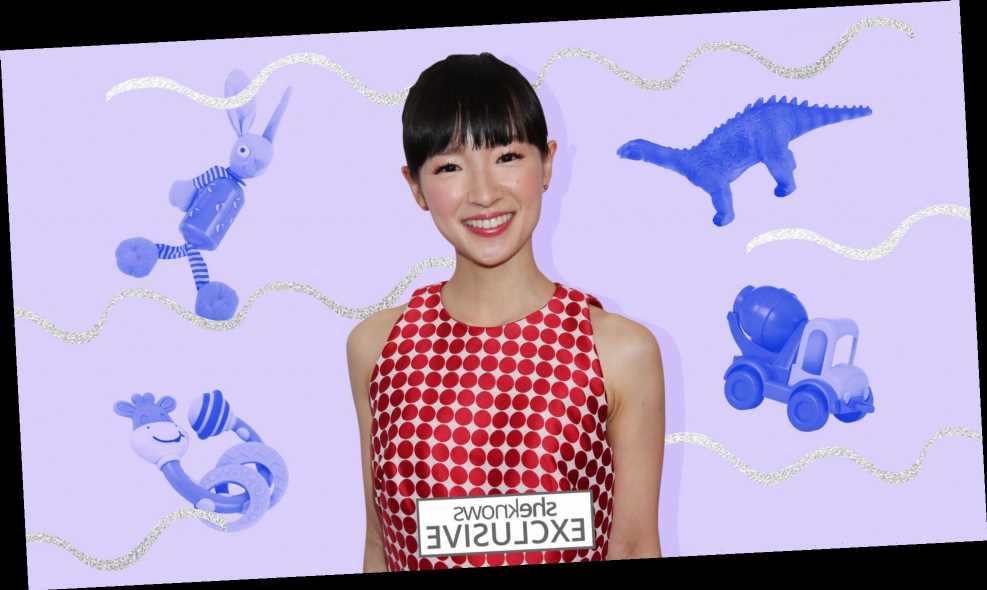Tidying expert Marie Kondo took the world by storm with her 2014 international bestseller The Life-Changing Magic of Tidying Up (Ten Speed Press). She captured our attention again with her 2019 Netflix show Tidying Up with Marie Kondo, for which she received an Emmy nomination as Outstanding Host for a Reality or Competition Program (the show was also nominated for Outstanding Structured Reality Program). Her message has been so popular it’s even sparked a spike in Goodwill donations as people follow her lead and get rid of anything that doesn’t “spark joy,” Kondo’s criterion for whether or not to keep possessions. Next year will see the release of Kondo’s book Joy at Work, co-authored by Scott Sonenshin, about how to stay organized at the office.
Now Kondo, a mother of two who began her tidying consultant business as a 19-year-old university student in Tokyo, is turning to the next generation of tidiers with her new children’s book, Kiki & Jax: The Life-Changing Magic of Friendship (Crown Books for Young Readers), illustrated by Salina Yoon. In the book, best friends, Kiki, a disorganized squirrel who likes collecting, and Jax, a neat owl who enjoys sorting, have to figure out how to solve Kiki’s issues with losing things so they can have more time to play together. SheKnows asked Kondo, the founder of KonMari Media, Inc., how early in their lives parents should start talking to their kids about clutter, how to keep track of all those toys that can easily take over your home, and how becoming a mother changed her perspective on tidying.
What gave you the idea to write a children’s book?
As a parent of two young girls, I’ve observed firsthand the impact that books can have on children. I wrote Kiki & Jax as a way to communicate the joy of tidying and friendship to young readers.
Why is it important for kids to learn about being tidy?
Through tidying, children develop an awareness — and ultimately, an appreciation — of what they already possess. It’s natural for children to become attached to favorite toys and special objects. Teaching them to treat these items with respect and to give them a home sends a subtle message about having gratitude for the important things in their lives.
How has becoming a mother changed your perspective on the importance of keeping your home neat?
When I first became a mother, I felt frustrated when I couldn’t tidy my home exactly the way I wanted. Then, after having my second child, I didn’t even have the energy to consider some of my former practices around the house! Motherhood taught me to be more forgiving of myself. The joy that comes from parenting exceeds any satisfaction that could have come from a perfectly neat home.
What’s the biggest challenge you’ve found in keeping your home neat after having kids?
Children’s toys seem to multiply and quickly become scattered throughout the house. To counter this, I designate a set location where each of these toys will be kept and make sure my children are aware of where their toys belong. Then they can assist with putting them away!
On some days, encouraging my daughters to tidy can feel like a losing battle. Rather than getting frustrated with them or attempting to tidy up after them throughout the day, I wait until my daughters go to sleep then clean up in one shot. It usually only takes ten minutes or so because everything has its own home — that’s the KonMari way!
You write in the book “Make it fun and tidying will become something you can enjoy together!” Do you have tips for parents on how to make tidying feel more exciting and less of a chore?
Tidy by example! I make folding clothes and laundry an activity my daughters and I do together. Of course, I don’t expect them to fold like pros, but I do want them to have a positive association with tidying and learn how to take care of the objects that help them through the day.
At what age do you advise parents start talking about the importance of tidying up and keeping track of their belongings?
When children are around age one and can begin to walk, you can encourage them to put their belongings away after play. It’s a great time to show your children that tidying and playing go together.
In the book, Kiki’s messiness gets in the way of her friendship with Jax. What message do you hope kids take away about how being tidy can impact their lives and relationships with friends and family?
When Jax shows Kiki how to tidy, he’s really teaching her about simplifying and making room for joy. Through tidying, the two learn to really value their friendship. This lesson can apply to anyone — distractions make it difficult to focus on what really matters.
Source: Read Full Article
